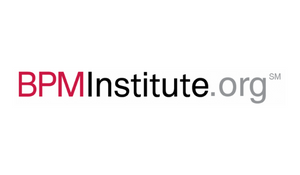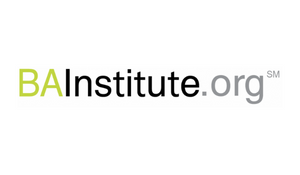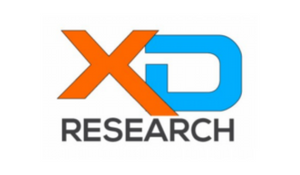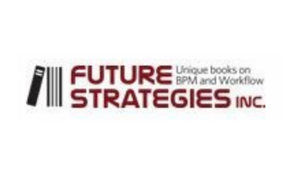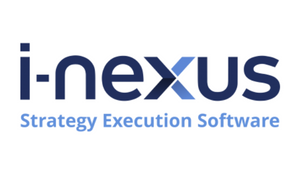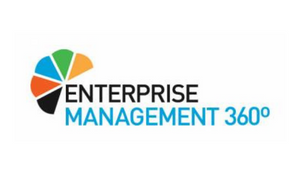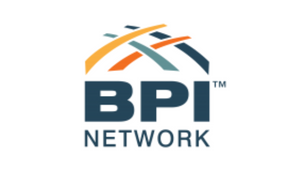

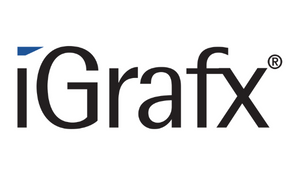
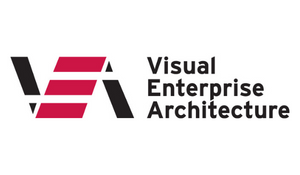

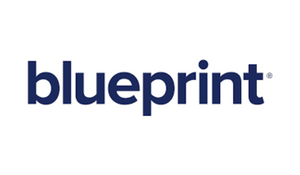
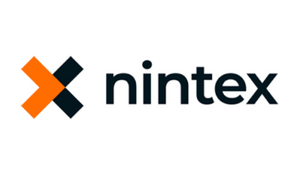
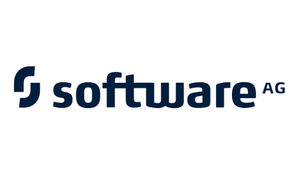


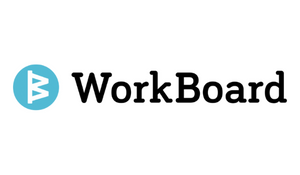
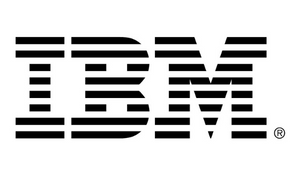


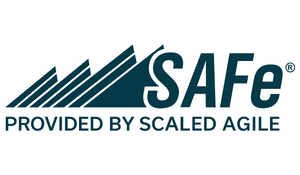



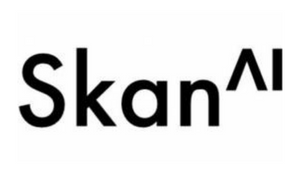

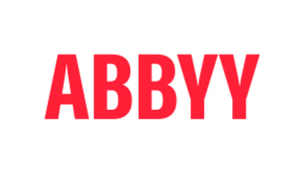

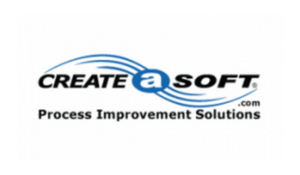




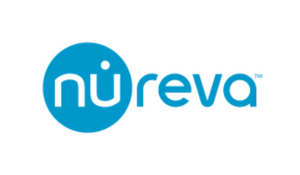

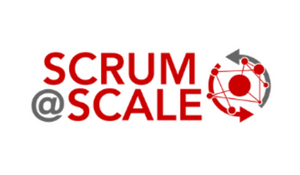

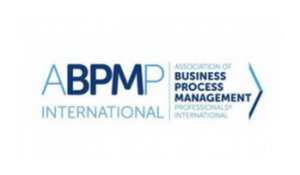
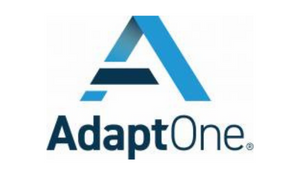
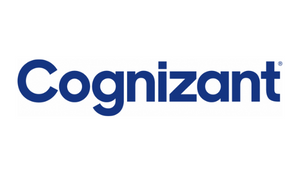
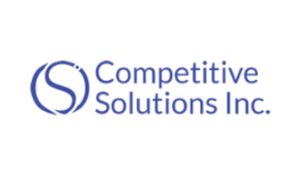
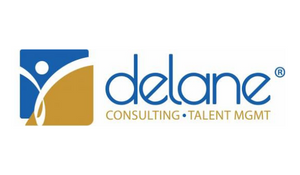

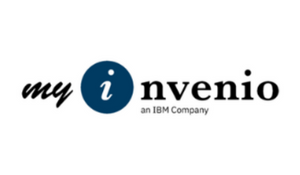

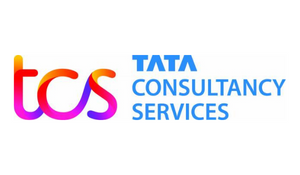
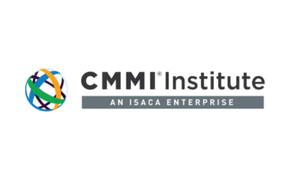
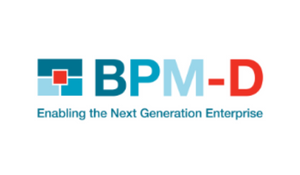

Courtesy of Fidelity National Financial's Rodolfo Rivera below is a transcript of his speaking session on 'The Globalization of the Practice of Law Through Digital Transformation' to Build a Thriving Enterprise that took place at the Digital Workplace Transformation Live - A Virtual Conference.

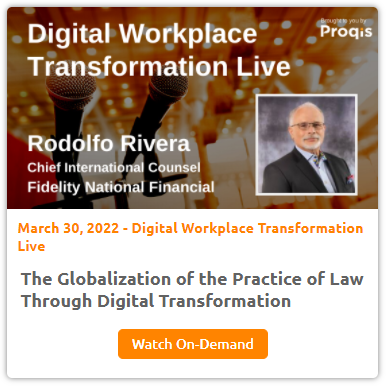

Session Information:
The Globalization of the Practice of Law Through Digital Transformation
From the invention of the telegraph to the invention of the cloud, technology has significantly modified and enhanced the practice of law. Like politics the practice of law was local. Lawyers seldom travelled outside of their geographical area. Today lawyers situated even in the most remote places can have a global practice. Communication is instantaneous. You can digitally travel the world in a matter of seconds.
We went from the telegraph, the telephone, the internet, Skype, Teams and Zoom. We went from storing paper files to storing millions of terabytes of data.
New technology can also bring headaches. Companies and law firms must adjust. There are many advantages but if you are not careful, technology can be a headache.
We will discuss the following;
1. How to use technology without eliminating the personal connection.
2. How technology has changed the way companies and law firms provide services.
3. How to sort though the vast expanse of digital information.
4. How to successfully integrate technology.
5. What are the pros and cons.
Session Transcript:
I'm very excited about it. And our first speaker here, he's going to talk about the globalization of the practice of law for digital transformation. And I'm talking about Rodolfo Rivera who is there with us, hello there, Rudy ..., just as quick as a quick bio here for you.
He's the Chief International Council, ..., National Financial. He's a board chair for step, Warm Floor, executive committee, board member, global board for the Global Board of Association of Corporate Counsel. He's a Ted speaker, and he is leading, for Fidelity, National Financial, a Fortune 500 company, for the, for the past 15 years, a digital transformation that has a digital component apply to law and that he is going to be sharing with us some of his experience. And that includes global expansion of the of the organization's operations and the establishing offices in Mexico in Malta as well as establishing a network of attorneys in 34 countries.
He's, he currently manages a multi-million dollar, national and international litigation budget when I combine exposure of over $250 million with a Native percent success rate.
So he's a frequent guest speaker and lecturer on managing litigation, litigating in multi cultural jurisdictions and managing outside counsel.
So, without further ado, Rudy, thank you so much for sharing your wisdom and expertise with our global audience today.
Thank you. Thank you, Josie. Hello, everyone. Thank you for having me.
Those of you who've been practicing for very little time, probably don't know what I'm talking about. Those of you who've been practicing for 40 years, probably do know what I'm talking about.
The digital transformation of the practice of law has changed.
You often hear, when you talk about the age of a dog, that one dog year is seven people years. So, a dog that's seven years old is really 49 years old.
Well, if you relate that to technology, I call it computer years.
Oh, a laptop that.
So, one year old is probably 50, by now, the way it changes, especially when you look at the way companies like Apple, always make updates.
But the digital transformation of law has been really incredible ease, in which to prep to actually manage a practice in 40 years ago. But let me take you back in time.
because, when I started practicing law, I can remember, the first computer was two floppy disks.
And I spent one thousand dollars on I Hitachi, Fax Machine that had a thermal paper that, just, you fed it in one sheet at a time.
Everything was done by paper and there was, and there was a push back buy older lawyers too.
Engage this technology in the practice of law because they viewed the practice of law as something that was service-oriented.
Profession face to face, everything was in the presence, but the technology has changed that. So let me go through the progression a little bit.
 The, the, the other side of it is technology develop slowly, along with the progression of the practice of law.
The, the, the other side of it is technology develop slowly, along with the progression of the practice of law.
When I practice law in saint Louis, I said, well, I want to practice international law international law Saint Louis command, OK? Technology has allowed, basically the globalization of law and lawyers who can reach clients anywhere in the world even from a small country in the Seychelles to, you know, small country in Latin America.
The technology has allowed people to render services on a global, global basis. So how has it changed?
First of all, you go from the fax machine to the computer.
Then now you go to the Internet, What that has done, it has allowed companies to communicate on a much more efficient level.
So prior to having a Secretary, prior, you had a secretarial pool.
Now you have resources like Dragon Software, other Philipps Technology that allows you to dictate and the words magically appear on your screen.
For law firms that's allowed them say to reduce their typing pool, to just have a group of people who who basically review or edit documents rather than originating them.
It's allowed people to connect much, much quicker, that that comes with the price, and I'll get into that later, But you can now render services from the beach, if you have a laptop or an iPad, as opposed to historically having to be in your office. I remember some of the old lawyers in saint Louis that they were gonna go on vacation, especially if they were trial lawyers, they would send boxes of depositions and and other exhibits to the vacation and and and transport them there and spend half a day.
Now, with your i-phone, your iPad, your computer, you take those documents any anywhere around the world.
So, really, the first, the first, I'd say, major significance, and the transformation of law is how you are able to render services.
So, keep in mind that historically, somebody had to come to your office. At best, it's a phone.
Now you have multiple platforms like Zoom Web X stream yd That allow you to communicate instantly.
You can I've had calls in three different countries on three different days.
Historically, we get on an airplane now we just click, click-click, and there, and there we are. If there was some resistance to that because people still like the face-to-face and Technology is not without its compromises as well. When you have a Zoom or Videotape presentation, you do lose the personal element And that's important in some cultures to have.
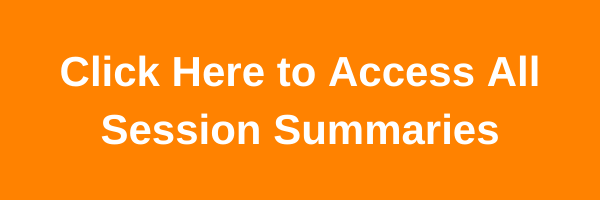 To have a personal connection, because that's how many people do business. I though, you know, Joseph from Brazil, I do a lot of work in Latin America, that personal touch is still important. So that's, you know, one of the downsides of technology, but for efficiencies, it's greatly, it's greatly enhanced it.
To have a personal connection, because that's how many people do business. I though, you know, Joseph from Brazil, I do a lot of work in Latin America, that personal touch is still important. So that's, you know, one of the downsides of technology, but for efficiencies, it's greatly, it's greatly enhanced it.
So, it's also allowed you to, uh, really deliver services instantaneously.
Where you could now stop and think about it, how many of you prepare a letter, any more.
Unless it's a formal demand, something similar, almost all communication is through e-mail, and at best, it's an attached document.
So, e-mail rather than the telephone has become the modem of communication.
In fact, this is something that drives me crazy. with Millennials. They'll respond to attacks, but they won't call you back. In some ways, I'm still of the old school. I would prefer to talk to somebody.
The texting and the e-mail is a new form of communication.
Why is that I have my suspicion that people are always multitasking.
And again, technology has its price. So rather than somebody paying 100% attention to you, they respond to you quickly an e-mail. And you wonder if they're really paying attention to you.
Stop and think, and each of your personal lives. How often do you call somebody? Most of the time, it's going to be an e-mail.
Most of the time is going to be a text, but not often is it a call?
And now what I'm finding more and more is when they do want some type of voice connection. Rather than calling you on the phone, they'll call you on Teams. My entire company is setup on Teams, and we don't call people on the phone anymore.
We click on Teams, and we just, just see if he's their fees there. He'll answer. If he's, they're, not there, he won't answer.
So, that's, the ease of communication is somewhat easier. Now. What's the other thing that's really been incredible is the ability to collaborate with others, simultaneously.
And when you're preparing for a big case, For example, you have to have multiple people, and you have multiple documents. Well, now you can do that virtually. Rather than everyone being a room.
People flying in, making copies of the documents. You have a system where you can collaborate with people all over the world.
Yesterday, I've had two days of hearings in a matter in Bermuda, and of course, people were everywhere, the documents were digital.
It eliminated the need for a trip.
So, that type of efficiency is really good in terms of collaboration.
It makes the collaboration more efficient.
You, you can upload the documents to, say, for example, Zoom, you can upload them here. You can upload them to Teams, anything. It's allowed people to work perhaps more efficiently. Again, the downside to that is that you don't have the personal connection. So you have to compensate for that in one way or another.
So, as much as I embrace technology at my old age, I still see the need for some type of personal contact. And I'll give you a good example. What I've learned, since I've embraced this technology, and I do a lot of meetings and zoom, a lot of meetings.
Teams, as if people still do not trust the technology completely, especially people I deal with in Latin America, for example, when you click on Zoom, it tells you you're being recorded, and you can stay on or not. But, you know what?
I can record from my cell phone, and nobody knows, right?
What I have found is that people will tell you things, will not tell you things on a Zoom platform that they will tell you in person, mostly because they want to know that you're there.
And so in some ways, people don't necessarily trust the technology.
Now, the flip side of that is, you trust it too much.
And people start saying things that they shouldn't say. Because remember, whatever you say is going to be saved.
And somebody will, well, well, we'll keep it forever.
I tell my son who's now working at AT&T and sales. I said, Son, Remember.
Whatever you do anywhere.
Somebody's got a phone and anybody with a phone is a director and producer that may end up somewhere.
So always, always be here. Be careful how you behave.
I actually give that advice more to younger kids than I do to the, to the, to the older people.
So, you know, that's the flip side, that everything you do, everything the phone, everything is, is for public, for public consumption.
The other, the other changes that have occurred drastically is the fact that hearings are now held remotely, especially hearings that are not, say the trial, but maybe a motion to dismiss or some motion on evidence. It, it's, it's a, it's a way to, you even have negotiations, we have settlement conferences, those things have facilitated. Now, what's changed with that, is that, in the past, before, the recent surge of this technology, you would have to physically go to these places.
And so I would have to decide if I'm monitoring a case that say, not at the, you know, my regular level, But I'm assisting one of the other business unit as well. I'm not going to go.
So, for cases that are of lesser value, you're able to be there and participate, because you can do it virtually, Where, before you would think. I'm not wasting my time going there. As such a small matter. We have about 600 lawyers throughout the company, and a lot of them, my column, baby lawyers.
-1.png?width=600&name=Event%20Email%20Graphic%20Virtual%20Conferences%20(17)-1.png) But even then, we don't send them. now. It's easier for them just to participate.
But even then, we don't send them. now. It's easier for them just to participate.
So that's part of the efficiencies that technology has allowed you to do, and the practice of law.
And it's, and other transformations are also incredible.
So you can, for example, store documents, right?
You can store them on a phone, you can store them on a thumb drive.
Remember, we went from two floppy disk to my first hard drive computer, having 10 megabytes of storage and I'm thinking, Oh, my God! I am never going to need any more memory than that.
That's all the memory I could ever need to my office.
And now, you're dealing in millions of terabytes, OK?
So, the other problem that occurs is really how to how do you go through that vast expanse of digital information?
Remember, technology has its prices.
So you're in a trial.
You're a Fortune 500 company, You've got millions and millions of documents. How do you go through that? How do you sort it through?
What becomes important, is that you have to have a system, which now relies on artificial intelligence, to look at those things, that, to bring them to you, you now have to have Search terms.
It's, for example, if you Figure a company that has about $8 billion in sales, has documents and documents and documents, an option would be to have people in a room looking through them and reading every document, right?
Or, what you do is you use software like Relativity or Clearwater, or Clare, well, a huge asked.
Scan them all in, and you rely on search terms, and based on that, you, you look for the documents, but otherwise, you can never do it.
Could you imagine how burdensome it would be to have to have dozens and dozens of people in some backroom somewhere, reading all those documents and coming up with conclusions?
I know early on before, artificial intelligence came out, That's pretty much what you had. You had people just sitting there reviewing documents, they would contract with lawyers.
Now you're able to scan that and, and, and, and, and specifically search terms. So, when you look at, one of the great developments in technology is, well, the development of the PDF format, right? It allows you to take documents that allows you to scan them, allows you to store them and allows you to search them.
So out of, say, a million documents, you're able, through the use of this artificial intelligence, get only the relevant documents that you need.
Even that takes some time.
But imagine the time it takes to go through those documents individually.
That's another way in which this digital transformation has revolutionized you know, the practice of law and ends. And so you know, the decision you have to make.
And you may find the strangest, how much of this stuff do you store?
Yes.
Some companies have warehouses and warehouses and warehouses of boxes.
Oftentimes, people think, well, it's just a digital file. How much space can it get?
But companies charge by the amount of digital storage. Where when we first dealt with a megabyte, then there's the Gigabyte, and now we have the terabytes.
Even the cost of storing terabytes can be super, super expensive.
It's gotta be kept somewhere, right? It has to be kept.
And companies will charge based on the amount of storage that you have.
Look at it in your everyday life for how many people are going out.
A cloud base, I often joke and say, There's no cloud.
It's just from my screen to somebody else's computer, but that's the term they use, right.
Everything now is pretty much subscription based, and everything pretty much just stored on the cloud in some form or another.
Many companies have Office 365 where they store things remotely. Your computer crashes, you open it up and the documents are still there. And they also charge you for the amount of storage. If you have an i-phone that says, Look at how much memory, you've got left. And, by the way, for so much per month, you can do it. So, you know, store the storage, and keeping that information there is also extremely, extremely important.
Excuse me, But just as you have to do with Box tick, you know, with boxes, you also have to figure out, Well, how much of this digital stuff do we keep? And that's, again, another cost of technology. Somebody has to sort through that stuff.
And then, of course, with all this information you get into.
Is somebody going to hack me?
You've now got ransomware.
You've got viruses is, some companies have up to a billion attempts at a hack.
That's why you see many, many companies are, are dealing with disaster recovery exercises. What happens if somebody hacks you have backup systems?
So you have the main system, and then, you know, you do these exercises that, Well, if this system goes down, can we go up? And with many technology companies now, they're, If your systems are down, you're in breach of contract.
Some companies have a clause in the contract, because I've read them that says, Well, if you're down for more than four hours, you're in a breach of contract.
.png?width=742&name=Screenshot%20(4).png) So that's constantly having to monitor to manage this expanse of information.
So that's constantly having to monitor to manage this expanse of information.
one of our divisions holds about 60% of the escrow information throughout the country.
That's a lot, if we're down.
It's a lot.
So, you have to basically find a way to base is sort through that and make sure that you have a governance system to make sure that it does A doesn't get corrupt, B doesn't get hacked and see that employees themselves don't get careless and let things in that could cause a problem.
I know that we are constantly doing fishing exercises and then you click gets a fish. They said, Oh, congratulations. Thank you for staying for staying alert.
So the expanse of information is just incredible.
Now, question is, how do you, how do you implement this stuff?
Many of you go into a company and you say, Wow, they've got all this stuff here. I've got my computer, I've got my, my, my i-phone iPad.
But, if you're starting an operation in a foreign country, if you're opening up a new business, how to successfully integrate technology is a key role. And I have certain rules.
My personal rules on that is, first of all, you have to establish what is your need, OK?
Are you transactional? Are you in litigation?
Are you in sales?
What is it that you have to have, OK, second, you need to understand your workflow processes.
And once you understand those, then you develop the technology that's going to address that.
Then, the next thing you need is the training of these individuals.
You know, somebody has to learn how to use the technology, which means they have to be trained. So, those are the steps that you go through when, when you're trying to decide, well, how do I integrate this technology.
And I can tell you that based on my experience, much of the technology that that companies acquire, people don't use to the fullest extent.
I mean, if it's your core business possibly, but just, personally, OK, if you go to your word computer, are you going to wear it on your computer? How many of you actually know how to use all the features?
Because that takes time and effort so successfully.
And you have to, you have to spend time training and practicing.
And most of us just get up there and type, right, All the things you can do with e-mail, you really know what you can do.
So too often, technology is underutilized and it could be utilized, you know, even more. So, integrating the technology is is basically something that's very key.
Now, with that, comes the responsibility of properly implementing it, which means properly having the licenses.
one of the things I do is manage software audits and, and too often. You know, I see sometimes certain divisions will go through and install software without even checking to see if all the licenses are there. And sometimes, they think the licenses are there, and they have a license key.
But the key is dependent on the location. So, if you're in Florida, for example, and you've got an employee, and in California now, that could be a violation of the licenses.
So in implementing the technology, you have to have the, basically the governance. You have to know the license's before you start implementing it. And then you go to, well, what is the finished product, right?
The finished product is generally going to be information.
It's going to be documents, it's going to be no a trial that you have to finish what is the product?
And that's basically also something at the gamma, what is the end game?
What is the endgame to do what you want to do with this technology? So in the practice of law, what's the end game?
The endgame is to deliver efficient administration of legal services, whether you're an outside counsel or whether you are corporate counsel, It's all the same thing.
As lawyers, you have the responsibility to provide those services to your business unit.
How do you do it?
Again, that's, that's why it's important to integrate the technology.
In my experience, some people really embrace it and some people, some people really, just just resist it.
Believe it or not, there are some things I do resist, one of which is this app called Whatsapp that everybody is using.
On matters, I have, in Latin America, a number of lawyers say, Well, let's just have a whatsapp group chat.
And we can communicate through that, Absolutely not.
I don't want the legal stuff to go through whatsapp. I want it to go through secure e-mail.
Um, you add people, you subtract people, you forget who's on there, And I don't want to have to look to my phone on Whatsapp to put something on my computer, so I definitely I don't permit that.
So remember, not all technology is good, but everything has its time in place.
I don't know how many of you remember the Newton by Apple.
That was, that was a big flop.
And the reason the Newton wasn't big flop, and it was really sold in the legal community to, wow, this is great.
You can have this handwriting technology, you can send a fax via telephone on what you type. It's a scheduler and everything and it was a big flop.
 Why was this such a flop?
Why was this such a flop?
Well, because the technology did not match at the time the services that needed to be rendered.
The handwriting recognition was very, very random to barely worked. It took you more time to try to handwrite something that is just to type it.
So when you're looking at digital transformation, you have to look to, is the technology sufficient, the Newton wasn't?
one of the reasons why Steve Jobs said that the technology for the noon wasn't good because he was a big believer in using your finger.
The Newton used the hand, OK?
And that's, and that's why sometimes this new stuff that comes out is not necessarily the best because the technology has not caught up to the services you want to perform.
So I personally am always hesitant to use, say, new stuff that comes out because there are a lot of bugs in it.
So, successfully integrating technology also means is what are the bugs, especially when you're talking about implementing massive systems throughout the company. You know, even just Office 365.
There are bugs, for example, in Microsoft Teams, you have instant chat, right?
How far how long do you store those chats?
What's the purpose of the chat is so that people can speak or communicate without sending an e-mail and just go back and forth working in teams, right?
Guess what? In a court proceeding, if you save that as an official record, it's discoverable.
So, let's just say that you sent somebody, sends a chat and it says, oh, my God. This vendor, I can't believe we over deployed. Oh, my God! What are we going to do?
Let's go delete the software that is discoverable.
So, people sometimes tend to trust this technology too much because no matter what you put, I know with my company anything I've put in the system, somebody can find it even though I've deleted it. It's there somewhere.
So, that's, you know, one of the issues with with, with with technology, that's why.
you sometimes look at How am I going to use it and Am I going to use it wisely, right?
So, integration of the So you've got first deciding what technology you need, you got second, the integration, and then third, you got the final end product.
Now, what are the pros and cons of technologies?
I'm sure every one of you here, who've listened to this, or is listening, has had some problem with software, has had some virus, or has had a situation where the software doesn't do what is supposed to do, or sometimes you feel that, you know, we've lost the personal effect.
Well, let's start with the good. The good is that it's allowed you to work efficiently.
It's allowed you to work in multiple jurisdictions, or act. It's allowed you to do, say, more work than you could physically do at any one time, because you're able to not work faster at a machine.
You know, just an aside, my phone has more memory than the voyageur satellite.
You imagine that technology from the 19 seventies is still working.
So, those are the efficiencies of the system, right?
The con, honestly, is that we kind of lost the human element, the human connection.
And for me, it's important in my world is that, despite the fact that I use technology quite a bit, that I do embrace it for an old guy, I'm pretty tech savvy and a lot of stuff.
But, I also have to really stress the human element of anything, the human element of anything is extremely important, and why is that.
Because very basic, it's even basic sales 101, or human relations 101.
People want to do business with people they like, and most people want to be liked.
So, although you have all this high falutin technology sometime, don't forget about the human aspect of it, OK? That's one of the causes people forget about it.
How often do people respond to a text's quickly, but you call them, they'll never answer the phone.
I make it a point that whenever I write anything, you, I call the person, and I say, Hey, my name is such that we're going to be working together. I mean, I'm more and mostly a buyer services that'll sell my services, but I mostly say, hey, this is how I prefer to be, to be communicated with.
-1.png?width=600&name=Event%20Email%20Graphic%20Virtual%20Conferences%20(17)-1.png) Yeah, feel free to send me e-mails, I kinda lay out the parameters of how I want this relationship to go from a technology point of view.
Yeah, feel free to send me e-mails, I kinda lay out the parameters of how I want this relationship to go from a technology point of view.
And, and then I, I will say to them, Look, rather than outlining, you know, or send me document. Send me an allyl gamify when you have a court hearing.
So it's on my calendar, so you know, I go through a process of how we can automate certain things, and then things that I want the face-to-face contact with.
So know that to me, the biggest con is you lose the human element.
The biggest pro is that you have efficiencies of work. I managed litigation and Mexico, I've managed litigation in Prague, and the Ukraine and India.
Romania, I speak Spanish, so there's no replacement for me actually attending the hearings.
I would try it all possible never to attend a hearing in those areas, and so they don't do it in Latin America yet, but even in the countries where where I have zoom hearings, I am still missing something. Because what I'm missing is the element of sitting in the in the courtroom, watching everyone's demeanor, seeing how they perform.
You can't really discern much from talking to an individual who's talking in a box and looking at you and you don't know what he's doing underneath, You don't know what other camera he's looking at.
I need to observe, and that's, that's one of the cons, too, this digital transformation to this technology. But I think if you take that into consideration and you apply the new technology, and you implement really good legal system, I think you can have an effective, effective and successful way of rendering legal services.
Not just as outside counsel, but internally, OK?
Internally, you can basically streamline processes don't eliminate the human element, but that's how technology has changed.
I remember watch and I used to love to watch Perry Mason, as a kid, that's Florida.
As reasons I wanted to be a lawyer and I remember Dallas Street would sit there and she takes shorthand.
So, let me just give you a brief ... of the technology. Well, first, no technology, you had a person that took shorthand.
And as the lawyer sat there at the meeting, they would be taking notes, right?
Then, it was the grinding reel to reel and sometimes they use vinyl, and we went to other dictating machines. Then we went to the mad cart, which was a IBM typewriter.
They had the, the cartridge in there and we went to the computers with the two floppy disk.
We went to the fax machine.
We went to the Internet.
We went to the Cloud.
We went from gigabytes to terabytes.
So just in the 40 years, I've practiced law. It's almost like I'm in two different galaxies from when we started.
And that's basically my view on technology and how it's transformed the legal services.
Now if anyone has any questions, I'm happy to Josie. I'm happy to entertain any questions at this point.
I'll stop sharing my screen.
Outstanding.
Really what I, what a, what a great reveal and perspective on digital transformation is really the, the application of technology to law practices. So, I'm going to bring my screen back my camera back. I'm gonna ask you to hit the button to stop showing your screen, so the audience can see us and the bigger screen. And why you do that? I'm monitoring all the questions coming in, so feel free, if you have submitted your questions, I can see them already, but, you know, you still have time to ask additional questions here. Again. I still see your Thank you screen Rudy's, So, if you put OK. There we go. Perfect. Now, they can see us big, again. So, the, the first, there are lots of different questions and a lot of different interesting segments here. And, I started with this one, which is interesting, kind of a fundamental question.
You discuss this during your presentation that, that you talked about?
Lawyers, you know, legal practitioners, understanding what they do as a process.
And there was an interesting reaction of the audience when you said that, because some of the folks who work with legal departments and the law practices, they made some commentary that they feel that often, attorneys and legal practitioners have a hard time doing doing just what you described, because they don't see what they do as a process. But they see more as a special skill set, or there is a bit of a resistance of seeing what their, what they do as a process. Curious if you could talk a little bit about that. Is that true or not? How do you break through that and you show the value of process to folks who may think that they are really quite sparse, showing what they do.
Well, I think the people who asked those questions are probably not attorneys.
Because, and I would say to them is bring the attorneys in through the process.
Try to educate them more on the process is important.
So as inside counsel, my client is the CEO, the business unit, manager, OK, and and I need to be able to understand what they're doing.
So if the attorney is not going to reach out to you, you reach out to him or her and you say, these are the, these are the processes. This is technology we're using. How can you help us with this? Get them involved in the process Because too often attorneys think, well, I'm a lawyer, I'm providing services and here's a product.
And I gotta tell you, when you get the other, I mean, if some people think lawyers in the US are arrogant, go to Mexico.
Oh my God, you know, it's like, wow.
And I sometimes have to sit back and say, wait a minute. I'm the client.
I'm paying for these services, and I'm not going to do that, but get them involved in the process.
.png?width=742&name=Screenshot%20(4).png) Very, very well. And, and, of course, you know, there is value in, in that, in the, establishing that process. And sometimes identify efficiencies, in the way that, that, that you do that, you, that you run the practice in different aspects of the practice. So, what I hear from you here is that get the attorneys involved and engaged in developing those processes and The and the and then and maybe they'll see the value in that, is that correct.
Very, very well. And, and, of course, you know, there is value in, in that, in the, establishing that process. And sometimes identify efficiencies, in the way that, that, that you do that, you, that you run the practice in different aspects of the practice. So, what I hear from you here is that get the attorneys involved and engaged in developing those processes and The and the and then and maybe they'll see the value in that, is that correct.
Correct, correct.
Very well. We've got, it's not actually older attorneys, you don't want to learn new things.
Oh, this is how I've been doing it forever, right, it's not just attorneys, other people.
That's, it was good for me. I remember, you know, my mother, she's 87, and I say, Monitor the air, and what did we do with that air conditioning? Well, then we just sweat, you know?
Yeah. Well, and I think that there was one comment there, there was a little bit longer, and as I was reading through it, it talked about exactly about that. That if you're in a law practice with 10 different attorneys who are kind of doing the same thing, each one of them thinks that what they do is very unique and not necessarily conducive to a standardized process. And the, and that's a kind of a difficult barrier sometimes, to overcome, according to some of the audience members.
You know, that that was a very, very important comment, because I can't tell you the number of lawyers it say, uh, hey, well, those business rules don't apply. And I'm a lawyer.
They don't really apply, I'm a lawyer. I'm not a business. They need to look at the practice of law as a business rendering services.
And so, you have to say to yourself, do you mean to say that the rules of business have no place in your world, is a lawyer.
I had a client once who was a music promoter, when I was in private practice, I would say, you know, Lenny, you need them. And no, no, you don't understand. It's my businesses.
No, it doesn't work that way, and my best ally, and I just can't believe that the rules of business developed over thousands of years do not apply to your specific area, and the entertainment world.
Exactly. There there is, there is a bit of an art and science, you know, a spectrum there. Then, depending where you are, the folks who feel more like what they do is a bit more of an art and not none, the science that lends itself to some process. And I think we all understand that It's a mix, and it depends on the context. But let me shift gears to a different type of question that has come up. And this is more on technology applications. Any specifically Rudy, any experiences that you have had with artificial intelligence being used, Illegal practices, there is quite a bit of hype about artificial intelligence and transactional processes in general, in review of contracts. And being able to reduce lots of man hours. Especially from kinda paralegal type of work, by using AI to, to identify what really matters, or even some cases, to, to write, You know, to write things.
But I'm curious to separate the height from the reality that you see on the applications of artificial intelligence today. Is it isn't helping in the practices and the law practices that you see is there are real useful applications of artificial intelligence that you're seeing.
Oh, No, absolutely. I mean, that goes to the vast expanse of information.
You can either have 100 people in a room, reading documents, that they'll miss things.
Or you can put them in a searchable format and use keywords anymore courts really allow you to use key words.
And, and, and, these, are the documents you find that, is it perfect?
I think, when people think of artificial intelligence, that, I don't think it really means that, the, that the computer is thinking for you.
In other words, what you're doing is, feeding information into the system, that you want it to sort through, In some cases, millions of documents, to come back to you with things that are relevant.
So, if you're in a case, and you need to know, everywhere, they use the word hacking, for example, and, you've got a million documents, you're looking, there's 10000 documents that have the word hacking, then use that artificial intelligence the weeded out. OK, but it's not a substitute for the human brain. Has there's still analysis and part of that analysis often is your gut feeling too coupled with experience and what you read.
Absolutely. And that's so, that's that combination. The human machine interfaces very is very important. There was a, there was another presentation from Siemens specifically on contract management where they use artificial intelligence and it's similar equivalent to some legal applications where they're looking at this contracts with 10000 pages and the and they use artificial intelligence to identify the different contracts. Maybe risk areas. And they developed this over time, where it was actually some level of cognitive application, Because it was based on the feedback of actual attorneys. Building kind of that intelligence. And then the system would go through this contracts and look for a certain risk areas and do some evaluation. So things are moving into into an area where it's becoming a bit more cognitive and not just. And not just you know, searches and and so on, so forth, But it feels that way. It seems that what you're saying is that?
It's it's an evolving area that for the time being well, and but remember. Part of the reason for those contract software companies is to also, establish some form of compliance, OK? So, for example, certain kind of contract clauses will never be allowed.
 So if you try to put that in, that's going to say, no, you can't do it.
So if you try to put that in, that's going to say, no, you can't do it.
But keep in mind, that's all information that needs to be fed into the system.
OK, and I can agree with you some.
what will you say is it can be cognitive But again, it's still just a search system, right?
If these are a problematic contracts, are problematic clauses and systems going to find those because they've been triggered somewhere?
That's, you're not going to have Hal, like in 2001, reading it and say, Don't put it in, it's, it's still system based, search on the facts you have. Right.
Very well, very well, on that, on that same vein of a technology implementation and the end applications, what do you see? I mean, you have, you have tremendous wealth of experience. You have see you talking about the evolution from fax machines. You started with fax machines, the Rudy, and then you went all the way to AI.
That's quite a bit of ground to cover now, which is excellent, because, you know, you're an expert with an open, with, a broad perspective, and also an open mind to how things continue to evolve.
What, you know, I often say that there are only two types of people who predict the future, those who don't know, and those who don't know that they don't know.
But, let's, let's, let's play with it a little bit here, and as you think in the next 5 to 10 years, how do you see the legal professional shifting any specifically with respect to technology?
Do you see, do you see a shift happening in the next decade or so where technology becomes a bigger part of what legal practice, professionals, you know, do and how would, that you think will affect the practice of law in the next five years? or so even?
Well, I remember as a young lawyer or some lawyers started just working from the house, you're going to see much more remote working than you ever have before, especially since the pandemic and Zoom I teach law at Washington University in Saint Louis.
I learned how to use Zoom, you know five years before the pandemic. So you're going to see much more virtual practices.
You're going to see Much more people, you know, working remotely That's that's the biggest change. I see.
I think you're gonna see more developments with artificial intelligence as you know, they, they progress and I mean even if you look at, for example, voice recognition software, When dragon first came out, you had to talk like this and Dear Miss stir Smith.
Now you talk like you and I talk and it just puts it on there, OK, so I see technology developing at the speed of light, so it's going like this at the speed of light, But then what happens is its implementation is falling behind.
Well, what do we use it for, And how are we going to use it? And then the third aspect of it is OK, now you gotta teach people how to use this stuff and how you do it.
Excellent, Rory. What a great one, great insights perspectives on the practice of law, the the role of technology and digital transformation. All of that.
On behalf of our global audience, I want to thank you for taking the time to share your wisdom and your expertise with all of us today.
Thank you. Thank you for having me. It was a pleasure. And I say, anybody who's listening, if you want to reach out to me on LinkedIn, reach out, and I'm happy to answer any questions.
Just, no, good luck and have fun with the rest of the conference.
Unfortunately, I have to log on to another hearing, the finish up, the second part of my hearing in Bermuda. So.
Outstanding, international law at its best with the use of technology. Thank you really again and have a great rest of your day.
Thank you.
Ladies and gentlemen that was Rodolfo Rivera Chief International Council with Fidelity National Financial sharing his wisdom and expertise on digital transformation is related to legal practices. We're going to be taking a break now and we're going to switch gears now to a different industry. We're going to be welcoming the Global e-commerce, Enterprise Architect and Innovation Strategist from Mars Corporation, Lead bogner. You do not want to miss this session. Lee is going to cover the journey of digital transformation and Mars, and the significant achievements and milestones that they have reached. So this is a true implementation, a true leader, and practitioner of culture, business, and digital transformation. I'll see you back with Lee at the top of the hour.

 Rodolfo Rivera,
Rodolfo Rivera,
Chief International Counsel,
Fidelity National Financial.
I have been an attorney for 40 years. Prior to Fidelity, I was a solo practitioner. I was hired by Fidelity to build its international operations in Mexico and Malta. I organized a network in 34 countries where Fidelity can sell its title policies. I also manage the claims litigation outside of the United States. I also manage all IT litigation. I also direct a team of IT professionals that respond to software audit requests by software companies.

View our schedule of industry leading free to attend virtual conferences. Each a premier gathering of industry thought leaders and experts sharing key solutions to current challenges.
View Schedule of EventsWelcome to BTOES Insights, the content portal for Business Transformation & Operational Excellence opinions, reports & news.
-------------------------------------------------------
Search for anything
Insights from the most progressive thought leaders delivered to your inbox.
Insights from the world's foremost thought leaders delivered to your inbox.
Being a hero is all about creating value for others. Please invite up to 5 people in your network to attend this premier virtual conference, and they will receive an invitation to attend.
If it’s easier for you, please enter your email address below, and click the button, and we will send you the invitation email that you can forward to relevant people in your network.
View our schedule of industry leading free to attend virtual conferences. Each a premier gathering of industry thought leaders and experts sharing key solutions to current challenges.
View Schedule of EventsWatch On-Demand Recording - Access all sessions from progressive thought leaders free of charge from our industry leading virtual conferences.
Watch On-Demand Recordings For FreeDelivered by the industry's most progressive thought leaders from the world's top brands. Start learning today!
View All Courses NowThe premier Business Transformation & Operational Excellence Conference. Watch sessions on-demand for free. Use code: BFH1120
Watch On-DemandInsights from the most progressive thought leaders delivered to your inbox.
Insights from the world's foremost thought leaders delivered to your inbox.
Being a hero is all about creating value for others. Please invite up to 5 people in your network to also access our newsletter. They will receive an invitation and an option to subscribe.
If it’s easier for you, please enter your email address below, and click the button, and we will send you the invitation email that you can forward to relevant people in your network.
Courtesy of Nintex Pty's Paul Hsu, below is a transcript of his speaking session on 'Improve employee productivity during and post-COVID by ...
Read this article about HP, Best Achievement in Operational Excellence to deliver Digital Transformation, selected by the independent judging panel, ...
Read this article about BMO Financial Group, one of our finalists, in the category Best Achievement in Operational Excellence to deliver Digital ...
Read this article about Cisco, one of our finalists, in the category Best Achievement of Operational Excellence in Internet, Education, Media & ...


